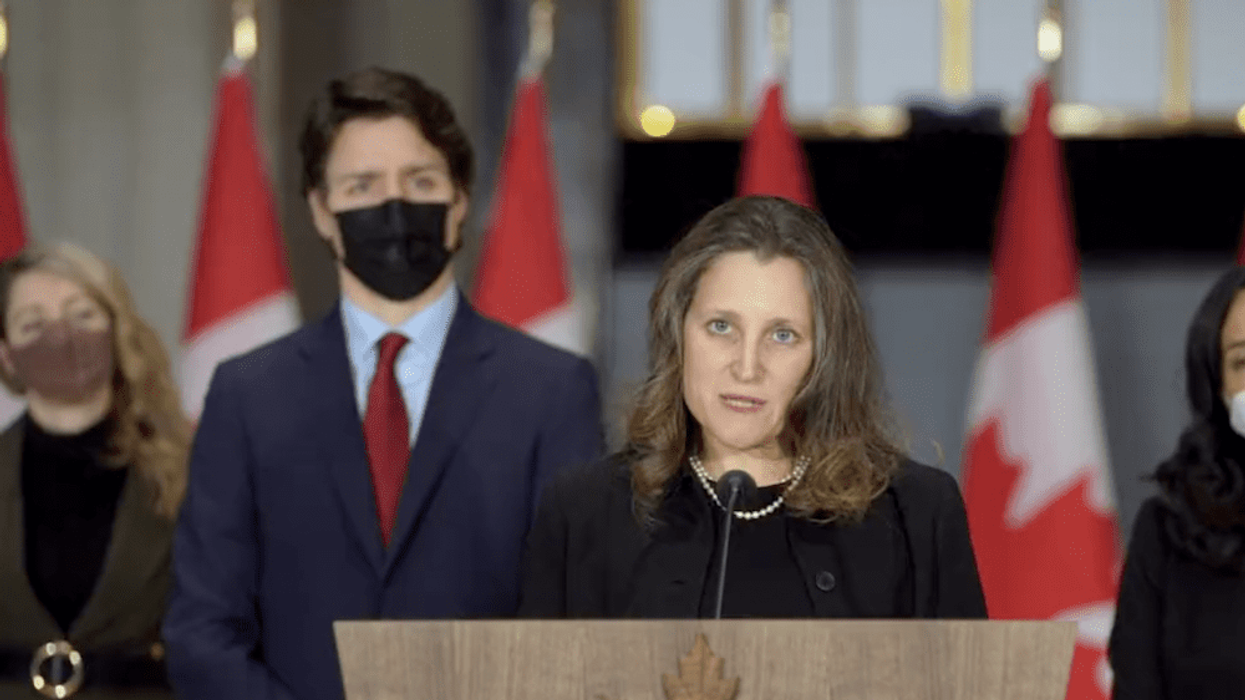Skyrocketing home prices -- and the resulting affordability hurdles for young Canadians looking to get onto the property ladder -- is “the current economic challenge today” and an “intergenerational injustice”, according to Deputy Prime Minister and Finance Minister Chrystia Freeland.
She made the comments in Montreal on Monday in a speech expanding on the housing measures introduced in last week’s federal budget, a number of which focus on improving housing access for first-time homebuyers.
“One of the things that I am most concerned about as someone who -- it shocks me to say this -- is 53 years old, is the intergenerational injustice,” Freeland said to attending reporters.
READ: Yes, Canada Has a Housing Affordability Crisis. Is It the Federal Government’s Fault?
“We had a better shot at buying a home and starting a family than young people today, and we cannot have a Canada where the rising generation is shut out of the dream of home ownership.”
She added that the “core problem” of eroding affordability is the lack of housing supply, a growing chasm that has been keenly felt in markets big and small across Canada; according to the Canadian Real Estate Association, the overall inventory of homes available for sale in March sat at 1.6 months, tied with January and February as the lowest on record, and well below the long-term average of five months.
Canada currently produces the lowest average housing supply per capita of the G7 nations, with just 424 units per 1,000 people -- an imbalance that has pushed Canadian real estate affordability to a 31-year low, and created sellers’ market conditions rampant in local markets across the country.
READ: 2022 Federal Budget: Everything Housing-Related You Need to Know
“We cannot have the fastest growing population in the G7 without also having the fastest growing housing stock,” Freeland stated.
Improving housing supply was a key promise put forth in the budget, with nearly $10.2B in spending announced to double homebuilding output over the next decade.
Initiatives for first-time homebuyers include a new Tax-Free First Home Savings Account, which would allow savers to stash a maximum of $8,000 annually, tax-free, up to $40,000 per person, to put toward a first home purchase.
The feds also rolled out some of the most aggressive measures seen thus far to curb real estate speculation, including a two-year foreign buyer ban, anti-flipping tax, and laying out a plan for the creation of a Home Buyer’s Bill of Rights, which will include a ban on blind bidding during the real estate purchasing process.





















